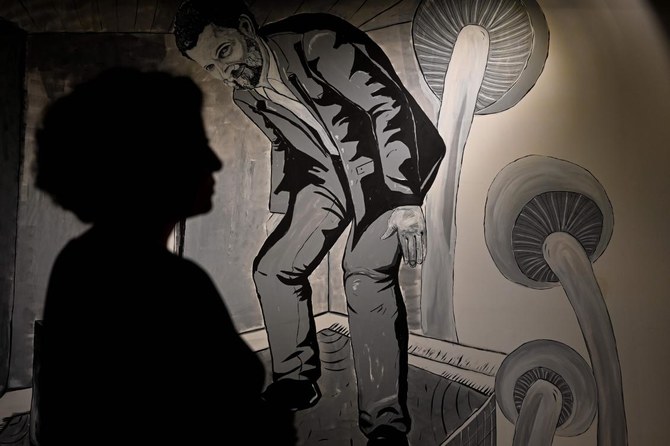ISTANBUL: Osman Kavala, imprisoned in Turkey for nearly three years without ever being convicted of a crime, is a philanthropist and businessman who supporters say has tirelessly used his wealth to help society.
He was not much known to the public before but he has been singled out by authorities under President Recep Tayyip Erdogan as a threat in the wake of the 2016 failed coup.
Kavala has been behind bars for 1,000 days Monday, prompting his supporters to campaign on social media and elsewhere with the hashtag #FreeOsmanKavala.
“We’ve had 1,000 days stolen from our life... my husband’s mother is over the age of 90 and she doesn’t know whether she will ever see her son again,” his wife, Ayse Bugra, said during an online press conference Saturday.
The 62-year-old was excluded when April legislation allowed for the release of thousands of prisoners as a safety measure against the coronavirus outbreak.
After his acquittal by a court in February over the 2013 anti-government protests, police held Kavala on a separate charge, linking him to the failed coup.
He is now accused of seeking to overthrow the constitutional order and espionage.
Kavala’s lawyer Ilkan Koyuncu said Saturday there was “no evidence” to prove the businessman had committed any crime.
Born in Paris in 1957, Kavala graduated from the University of Manchester after studying economics and following his father’s death in 1982, he took the helm of his business.
But he always supported art projects, helped build bridges and turn ideas into a reality by funding them.
Humble but stubborn, polite but direct, bossy but never patronizing: this is how his friends described him.
“I would rather describe him as a colleague than a boss. Osman bey has never patronized us,” Asena Gunal, director general of Anatolian Culture, told AFP, using an honorific title to show her respect for him.
Kavala is chairman of Anatolian Culture, or Anadolu Kultur in Turkish, which promotes human rights through art — including with neighboring Armenia, with which Turkey has no diplomatic ties.
“He has never boasted of his wealth but has a humble personality who feels embarrassed of whatever he owns,” said Gunal at the Depo arts center in Istanbul’s upscale Tophane district.
It was a former tobacco depot — inherited by Kavala from his father that was restored in 2008 as a culture and arts center.
Kavala, who is in the heavily guarded Silivri prison on the outskirts of Istanbul, has become a symbol of what critics say is a crackdown on civil society.
Umit Kivanc, an author whose friendship with Kavala dates back to over 40 years, said the philanthropist was misunderstood by secular people and denounced the labels characterising him as a rich man who leads a bourgeois life.
“He’s a man who works for justice in the world. His father died and he took over the business. Osman doesn’t even lead a bourgeois life,” Kivanc said.
“What he is subjected to from every (political) camp ... is unfair.”
The court in February ruled there was no evidence showing Kavala financed the 2013 protests over government plans to urbanize rare green space in the heart of Istanbul.
He was the only one of nine defendants kept in jail throughout the trial.
Shortly after his acquittal, Kavala faced two fresh arrest warrants including espionage charges, which he deemed as “more ridiculous than the previous” accusations, in a message from his cell in March.
For his friends, Kavala worked for a “better Turkey” without discriminating against anyone at a time when society is deeply divided.
“Osman has always seen the value of citizens being actively engaged in peaceful civic initiatives which are for the public good not just for the good of one part of the society,” Emma Sinclair-Webb of Human Rights Watch said.
“He is the last person to support any coup attempt and it is truly appalling to see him targeted as he has been and made the pawn in some incomprehensible political game.”
Kavala is careful not to offend people even though he can be tough in long debates, according to Gunal.
“I’m saddened by the fact that a person who paid utmost care not to marginalize anyone is being marginalized and targeted by people who don’t know him.”
Burhan Sonmez, PEN International’s board member, said Kavala asked him to tell foreign friends, diplomats and activists not to attend an Istanbul hearing on December 24.
“Instead, they should spend that important moment of the year with their families and friends. Christmas is the best opportunity to come together with loved ones, he said.”
Kivanc added: “People are misled. Rich, bourgeois, businessman... No, Osman is a stubborn leftist! Turkey is a land that chips away at everything that is good.”
fo/raz/bsp
APRIL



























